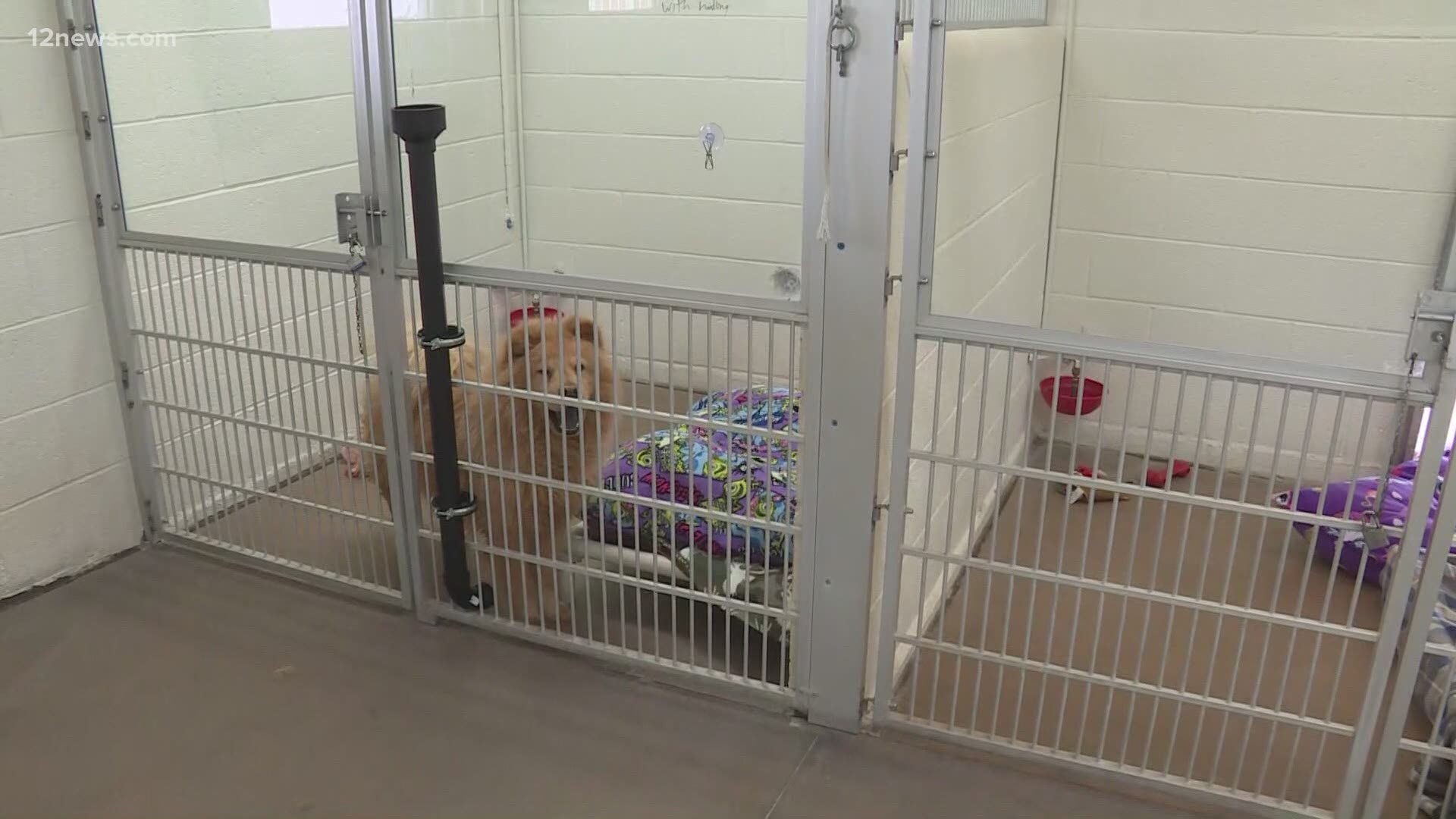PHOENIX — A day on the job with Ruthie Jesus means non-stop work.
"It's very personal," she says.
She’s the field operations manager and animal cruelty investigator with the Arizona Humane Society in Phoenix.
She says they respond to 12,000 calls a year. About 7,400 are animal cruelty calls.
As part of our ongoing coverage into conditions at animal care facilities, 12 News went behind the scenes with Jesus to talk about what she sees in the field.
"There are those times we think it can’t get bigger, it can’t get worse," she explains. "Unfortunately, my team finds it."
Her team of animal cruelty investigators work independently and they also contract with local law enforcement to handle or help with investigations.
"We work animal hoarding cases almost daily," she tells, noting it's more common than people think.
In many cases, they're able to help or educate individuals who may have found themselves in situations that got out of control.
"Sometimes people get a little nervous we're there to take their animals," she adds. "That is the bottom of our list of what our goal is. Our goals is to get to know families and their situation, then escalate to police as needed."
Some recent cases with seizures include 90 dogs rescued from a home in Casa Grande back in September after six of them were found dead outside.
Ruthie also tells of another man in Gilbert who they caught not once, but twice breeding and selling dozens of rabbits he couldn't handle.
Another case that haunts her is the seizing of more than 200 animals in dire conditions from Planet Petopia in Phoenix, an animal boarding facility that people trusted with pets.
"You have animals living in dire living conditions. You have people living in dire living conditions," she said.
"You have animal suffering without proper medical attention. It's very frustrating and I certainly think it's contributing to the problem that we don't have good regulation for that in the state of Arizona."
When it comes to hoarding, municipalities can make their own rules if they choose to on how many animals people can have and how they can enforce it.
In Arizona, shelters, rescues and breeders don’t need licenses or regular inspections, which means complaints and responders like Ruthie are the frontlines of finding and trying to solve any problems.
"If we could get to a place where it's covered at a state level, it would be so much easier for individual towns and cities and municipalities to enforce."
Even so, her passion outweighs the frustration. Whenever they take an animal into their care, the animal is treated and in many cases put up for adoption into a better living situation.
"It's literally the reason I get out of bed in the morning and come to work," Ruthie explains. "It means so much. It absolutely is a labor of love. Even on the tough days, you know that you’ve made a difference for that animal and they’re not going to continue to suffer."
To keep up with our Puppy Predators series, subscribe to the 12 News YouTube channel.

